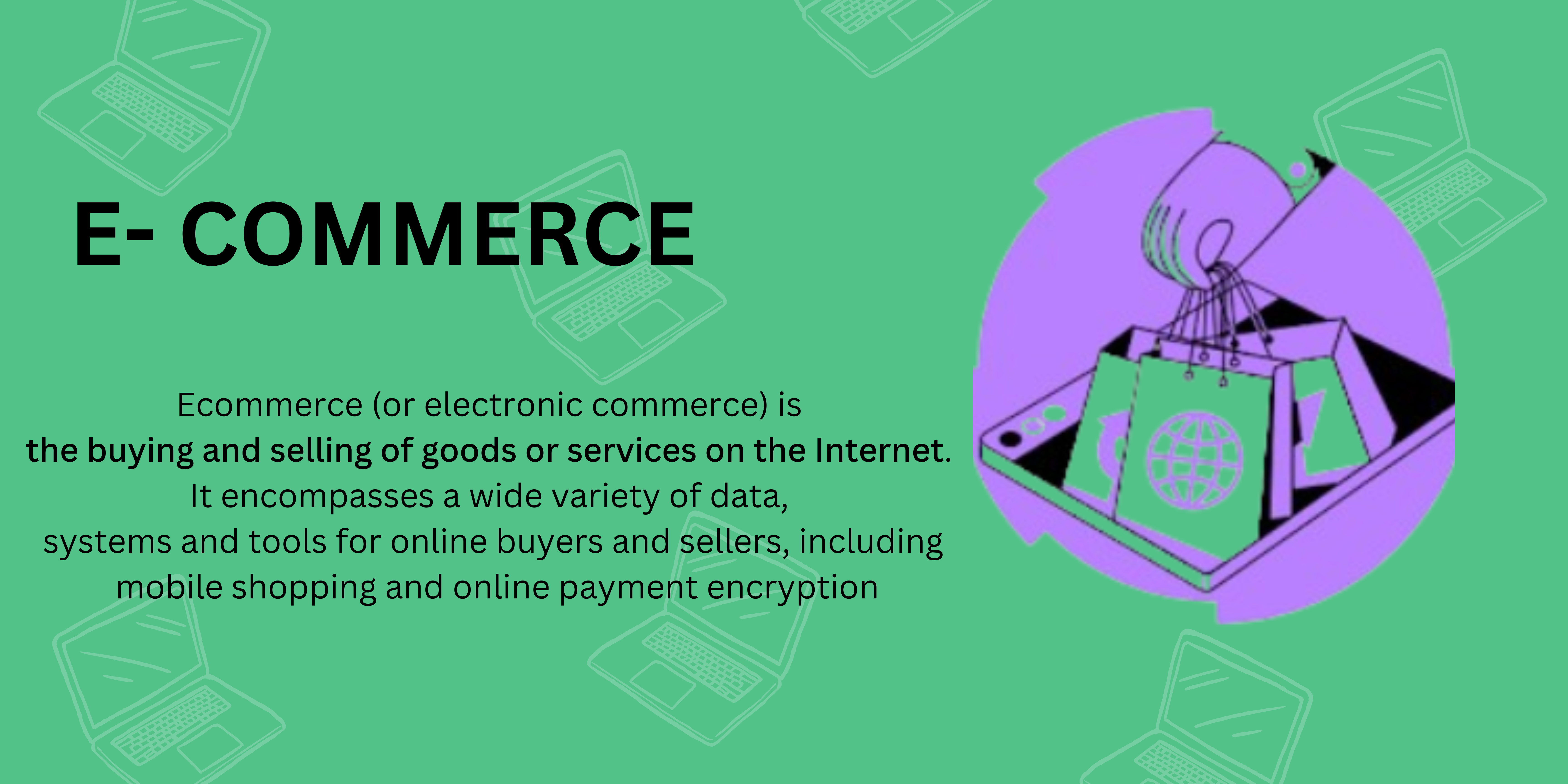E-commerce, or electronic commerce, has fundamentally transformed the way businesses operate by enabling online buying and selling of goods and services. It leverages digital platforms to facilitate transactions, allowing businesses to reach a global audience beyond traditional geographical boundaries. E-commerce platforms range from simple online stores to sophisticated marketplaces, offering consumers convenience, choice, and 24/7 accessibility. Key aspects include secure payment gateways, personalized shopping experiences, efficient logistics, and robust cybersecurity measures to protect customer data. E-commerce continues to evolve with innovations like mobile commerce, AI-driven recommendations, and seamless integration with other business systems, driving growth and reshaping consumer expectations in the digital marketplace.
Moreover, e-commerce empowers businesses of all sizes to compete in the global marketplace on equal footing. Small businesses can establish an online presence quickly and affordably, reaching customers worldwide without the overhead costs associated with physical storefronts. This democratization of commerce fosters entrepreneurship and innovation, as companies innovate in product offerings, marketing strategies, and customer engagement tactics to differentiate themselves in crowded markets. E-commerce also facilitates real-time analytics and insights into consumer behavior, allowing businesses to adapt swiftly to market trends and customer preferences. As technology continues to advance, e-commerce will likely play an increasingly pivotal role in shaping the future of retail and commerce, driving further digital transformation across industries.


Additionally, e-commerce has revolutionized the customer shopping experience by offering unparalleled convenience and choice. Consumers can browse a vast array of products, compare prices, read reviews, and make purchases from the comfort of their homes or on the go with mobile devices. This accessibility has reshaped consumer behavior, with more people opting for online shopping due to its convenience, time savings, and ability to shop anytime, anywhere. E-commerce platforms also leverage data-driven insights to personalize recommendations and promotions based on individual preferences and past purchase history, enhancing customer satisfaction and loyalty. As a result, businesses are increasingly investing in enhancing their online presence and optimizing their e-commerce strategies to capitalize on the growing digital marketplace.





